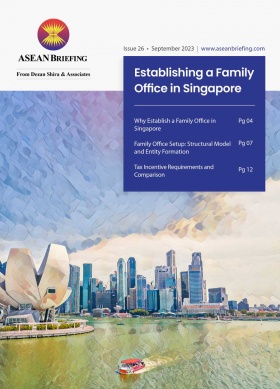Laos Raises Immediate Excise Tax Rates on Specific Products
Laos introduced a new decree introducing strategic excise tax adjustments on various products, emphasizing the government’s commitment to mitigate foreign currency depletion, promote sustainable practices, and fortify economic resilience through prioritized imports.
On October 9, 2023, Laos implemented Presidential Decree No. 003 (hereinafter referred to as “new decree”), ushering in immediate changes to excise tax rates.
The new decree, effective without delay, marks a strategic response by the Lao government to the prevailing economic context, characterized by the marked depreciation of the national currency, the Lao kip (LAK). The urgency of the measure reflects the government’s commitment to swiftly address issues related to foreign currency outflow and economic stability.
This article delves into the key aspects of the new decree, with a particular focus on its timely and impactful nature in the face of currency depreciation.
Context: Laos currency depreciation
Against the backdrop of Laos’ economic landscape, the persistent depreciation of the Lao kip emerges as a critical factor, significantly impacting the cost of living and exacerbating an ongoing inflation crisis.
Indeed, the economic narrative in Laos has been defined by a substantial increase in inflation since the outset of 2022. Data indicates that the inflation rate reached a staggering 41.26 percent in February 2023, marking a drastic ascent from 6.25 percent in January 2022. This surge in inflation has created a cascading effect, placing heightened financial burdens on the populace grappling with the soaring cost of essential commodities.
Recognizing the urgency of the situation, the Lao central bank has announced plans to sell savings bonds, totaling up to 2 trillion Lao kip (approximately US$96.5 million). This strategic move aims to provide the public with investment opportunities while supporting the government’s monetary policy and efforts to stabilize the value of the kip. This initiative also follows a series of bond sales and aligns with the government’s commitment, as outlined in the 2023 monetary plan, to lower the annual average inflation rate to a single-digit figure of 9 percent.
Specific products and tax rates introduced in the new decree
The new decree introduces a significant shift in excise tax rates across various product categories. The following table delineates the specific products affected and their corresponding adjustments in excise tax rates:
|
Specific Products and Excise Rates |
|
|
Products |
New Excise Tax Rate (percentage) |
|
Vehicles (Jeeps/SUVs and sedans) using fuel |
|
|
1,000 cc and under |
31 |
|
1,001-1,600 cc. |
41 |
|
1,601-2,000 cc. |
56 |
|
2,001-2,500 cc. |
66 |
|
2,501-3,000 cc |
82 |
|
3,001-4,000 cc. |
127 |
|
4,001-5,000 cc. |
200 |
|
Over 5,000 cc. |
220 |
|
Liquor and alcoholic beverages |
|
|
Less than 10% ethanol |
72 |
|
10%-23% ethanol |
90 |
|
Over 23% ethanol |
110 |
|
Beer |
|
|
0.5%-5% ethanol |
60 |
|
Over 5% ethanol |
70 |
|
Smoking products |
|
|
Raw tobacco |
47 |
|
Cigars, cigarettes (per piece or pack), and similar products |
72 |
|
Non-alcoholic beverages |
|
|
Soft drinks, soda, and similar beverages |
12 |
|
Energy drinks |
17 |
|
All types of gaming devices |
|
|
These include, among others: coin-operated arcade machines, game devices for authorized gambling, etc. |
50 |
Significance and implications
The new decree carries profound implications in aligning with the broader economic strategies of the Lao government. This new rate policy not only addresses immediate fiscal considerations but is strategically positioned to dovetail with recent governmental initiatives aimed at fortifying the nation’s financial resilience. Along this line, some immediately observable key objectives include:
- Mitigating foreign currency depletion: The decree serves as a linchpin in the government’s ongoing efforts to safeguard foreign currency reserves. Against the backdrop of the marked depreciation of the Lao kip, the directive strategically discourages payments in foreign currency. Notably, commercial banks have proactively responded by rationing foreign currency supply, prioritizing essential imports—particularly emphasizing the import of vital goods like fuel. The specified products in the decree thus formalize the impetus to selectively prioritize imports, thereby curbing unnecessary expenditures in foreign currency.
- Transition to sustainable practices: An intrinsic element of the new decree lies in its role as a catalyst for sustainable practices. This is observable, for example, in the escalated excise tax rates on fuel-powered vehicles which underscores a resolute commitment by the Lao government to propel the nation towards an eco-friendly trajectory. This strategic move is indicative of a broader agenda to embrace electric vehicles (EVs), aiming to reduce the country’s dependence on fuel imports.
- Economic resilience through import prioritization: By formalizing the prioritization of certain imports, the new decree contributes to a more resilient economic framework. The selective encouragement of essential goods aligns with the government’s overarching goal of fortifying economic stability.
About Us
ASEAN Briefing is produced by Dezan Shira & Associates. The firm assists foreign investors throughout Asia and maintains offices throughout ASEAN, including in Singapore, Hanoi, Ho Chi Minh City, and Da Nang in Vietnam, in addition to Jakarta, in Indonesia. We also have partner firms in Malaysia, the Philippines, and Thailand as well as our practices in China and India. Please contact us at asean@dezshira.com or visit our website at www.dezshira.com.
- Previous Article Malaysia’s Budget 2024: Impact for Business
- Next Article The New Frontier: Southeast Asia’s Emerging Space Role






